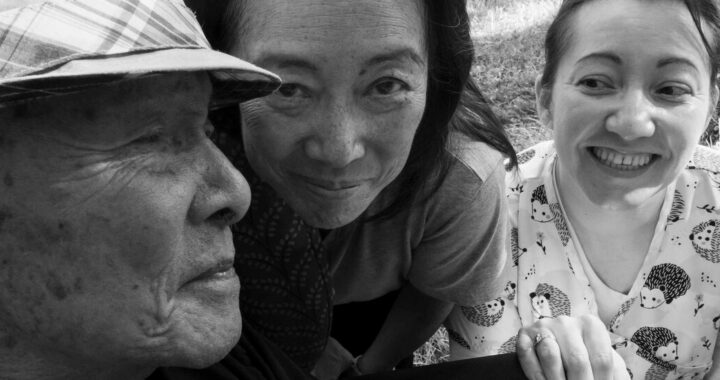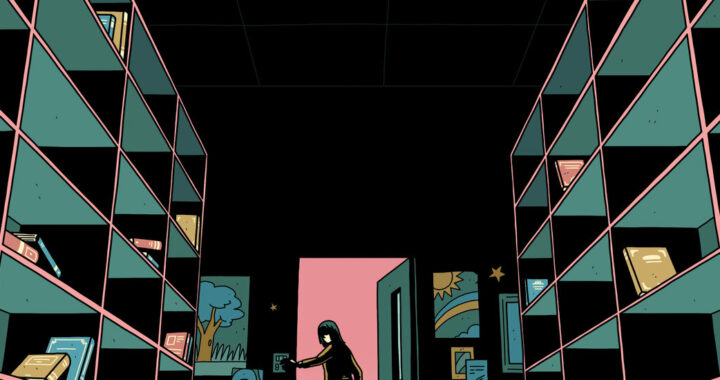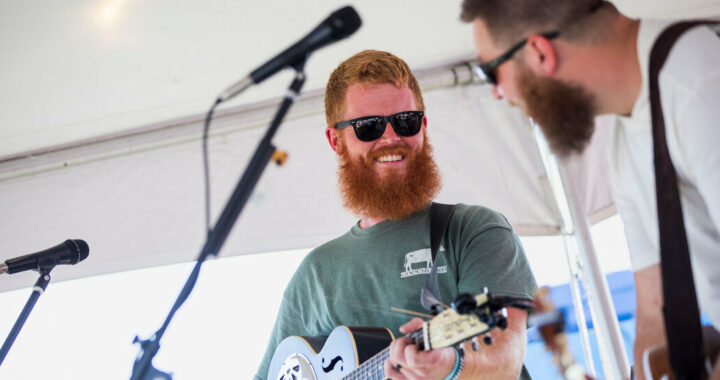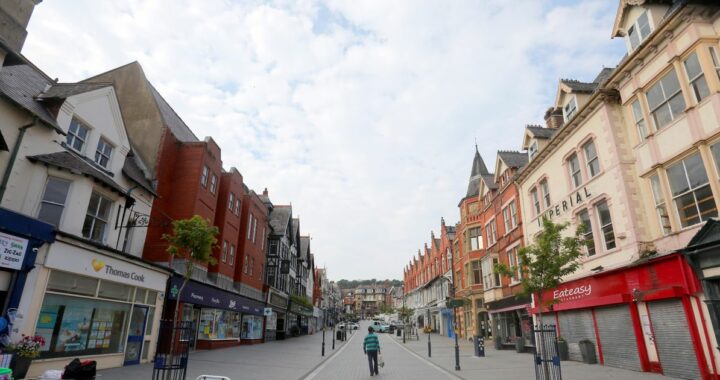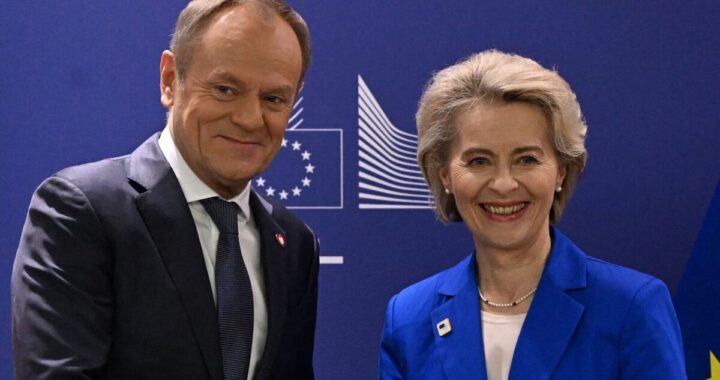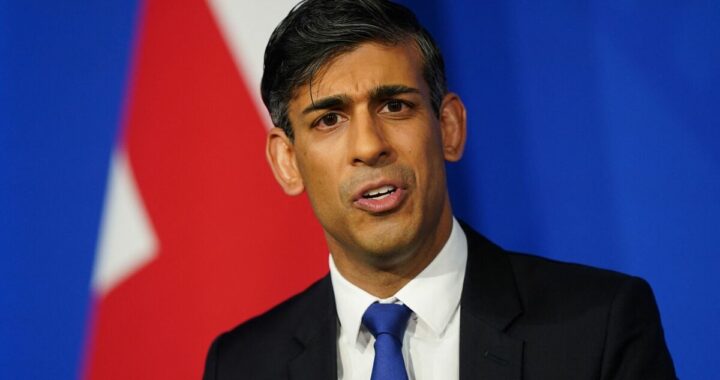Opinion | ‘Freedom’ Is a Word I No Longer Trust
6 min read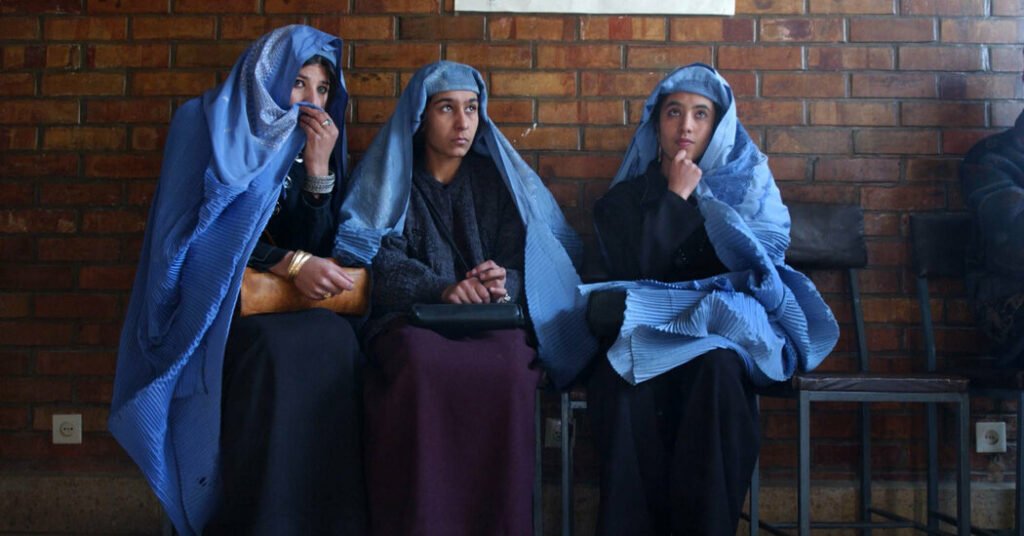
When the United States freed Afghanistan from the first Taliban government in 2001, everything in my homeland seemed to change overnight.
My father, a businessman, retrieved his cherished television from its hiding place in our home in Kandahar, where he had stashed it for years after the Taliban banned TV, along with music and cinema, as un-Islamic. Dusting it off, he placed it in a prominent spot in our living room, as if he were reclaiming a part of his own identity. People sang songs of liberation from Afghanistan’s past, and we hoisted high the new tricolor national flag that reflected our nation’s hopeful trajectory: a black band for the dark past, a red band signifying the blood shed for liberation and a green one representing optimism for the future.
It was as if a smothering veil had been suddenly lifted, revealing a world of color and sound that I, then a young girl regularly confined to our home because of Taliban edicts, had not seen or heard before. Even the sky seemed brighter and wider.
None of us could have dreamed that two decades later the Taliban would be back in power. That fate was finally sealed two years ago Wednesday, when the last American military forces were pulled out and, overnight, we lost our freedom again.
Since then I have come to ask myself, what is freedom, exactly? In other countries, particularly in the West, the answer may seem straightforward. But for Afghans, “freedom” is a word with many faces, a fleeting and fragile thing that passes from one hand to another, each claiming its own version of it. It is a word that I have learned not to trust.
Afghanistan has suffered from a succession of supposed liberators. The Soviets invaded in 1979 to prop up the Communist government at the time, which had vowed to free Afghans from feudalism, backwardness and inequality. The Soviets and their Afghan puppets were opposed throughout the 1980s by the mujahedeen, who were themselves hailed as “freedom fighters” by their backers in the United States. The Taliban later came along, promising to free the country from foreign ideas and the chaos of the nearly 10-year Soviet-Afghan war and civil war that followed. They seized full power in 1996.
President George W. Bush, of course, invoked freedom in justifying the military action that overthrew that first Taliban regime after the attacks of Sept. 11, 2001, saying of Osama bin Laden and his Taliban protectors: “They hate our freedoms: our freedom of religion, our freedom of speech, our freedom to vote and assemble and disagree with each other.”
The U.S. invasion later that year brought us some of these freedoms. The democracy that ensued was a flawed experiment riddled with corruption. But millions of Afghans, rich and poor, men and women, nonetheless rejoiced in the idea of voting in democratic elections.
I can recall other things as a little girl, like suddenly being able to walk with my mother to shop at the bazaar without fear of being lashed by Taliban whips for appearing in public without a male escort. Most exciting, girls were allowed to attend school again. My mother could finally speak openly to me and my siblings of her own college days before the Taliban, when she became a chemistry professor at Kabul University. She was giddy that her three boys and three girls would grow up educated. I stepped into a classroom for the first time at the age of 7, in my new uniform of black frock, white trousers and a scarf, a bundle of nervous pride tightly clutching the pencils that my father had given me.
In 2016, I left to pursue an education in the United States and watched from afar two years ago as control of Afghanistan swiftly fell to the Taliban again.
As the final American pullout neared in August 2021, my cousin in Afghanistan told me by phone how he had witnessed an elderly woman, her face wet with tears of joy, welcoming triumphant Taliban fighters. She embraced and kissed one young fighter, thanking him for helping to liberate the country from the “heartless, evil” Afghan and American forces that she blamed for killing her three sons in a military raid. Some people showered the Taliban with sweets, a gesture of welcome and reverence in Afghan culture. I was stunned by the contrast between my own family’s fear and despair and that woman’s relief. But how could I blame her? One person’s freedom is another’s oppression. As Albert Camus wrote, “Absolute freedom mocks at justice.”
Now back in power, the Taliban have silenced dissent, enforced their strict brand of Islam and erased Afghan women from public life, education and the workplace. The Taliban have applied a doctrine they call fekri jagra, or “war of thoughts,” to purge Afghanistan of the ideas they say have been imposed on the people by foreign powers.
In America, I thought that I would finally learn what freedom really was, and I did feel free at first. I could speak my mind, question and challenge others, ride a bicycle and wear whatever I chose to wear.
But even here, it’s not so simple.
Former President Donald Trump has attacked and incited violence against some of the foundations of American freedom — the press, Congress, truth itself. In doing so, he is no different from the other authoritarians and fascists around the world who appeal to mythical or selective notions of freedom that threaten to erase all others.
A growing push by American conservatives to remove books from libraries or public schools on grounds of morality or contested history, or to supposedly free children from the “woke agenda” reminds me of when I was 11 and Taliban sympathizers came to our home to tell my father that if my sisters and I returned to school, we would have acid thrown in our faces. This was a few years after the Taliban had been driven from power, yet parts of the country were still under their sway. For the next nine years, books and a slow dial-up internet connection were my only window to the world beyond the four walls of my home.
We should be wary of those who speak of freedom as if it were self-evident and universal. We must look closely at our freedom, as if it were a beam of light passing through a prism, to discern its true colors. We should ask ourselves: Are we really free, or do we live in someone else’s idea of freedom, one driven by religious or nationalist myths? Does my freedom to stay ignorant deny your place in history, your identity? Do my rights diminish yours? No matter where we stand politically or geographically, we should weigh the freedom that we seek against the moral cost that we pay to achieve it.
I feel more like an observer of American freedom than a true participant. Freedom is not only a physical or intellectual state; it is emotional. The Taliban takeover has devastated and scattered my family and enslaved my homeland. I will only truly feel free when I can do in Afghanistan the same things that I can do in America.
Sola Mahfouz (@MahfouzSol94817) is a quantum computing researcher at Tufts University and the author, with Malaina Kapoor, of “Defiant Dreams: The Journey of an Afghan Girl Who Risked Everything for Education.”
The Times is committed to publishing a diversity of letters to the editor. We’d like to hear what you think about this or any of our articles. Here are some tips. And here’s our email: [email protected].
Follow The New York Times Opinion section on Facebook, Twitter (@NYTopinion) and Instagram.
Source: Read Full Article
